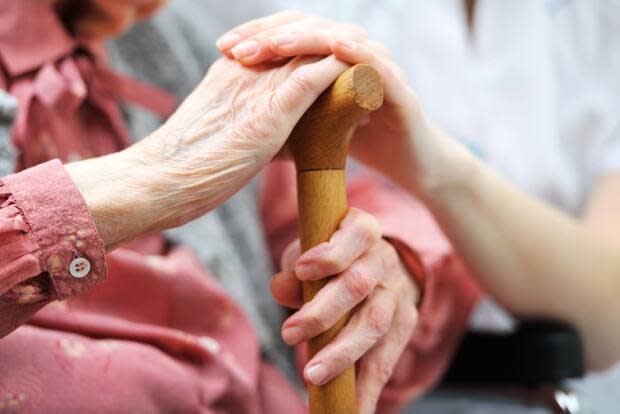Sask. nurses unions calls for more staff in long-term care facilities

To recognize nursing week, three nurses unions in Saskatchewan are calling on the province to end understaffing in care-homes by increasing the number of continuing care assistants (CCAs) in the province.
The SGEU, SEIU-West and CUPE released a statement on Monday saying the provincial government should be following it's election promise to hire 300 additional CCAs to long-term care homes, as well as to rural home care.
Tracey Sauer, the president of SGEU, said CCAs are overworked.
"The staffing of the CCAs is not adequate to maintain safety, not only for the residents and the home care and acute clients, but it's also not safe for the staff," she said. "It's an increased workload that needs to be addressed."
The Saskatchewan Ministry of Health said the 2021-22 budget contained $6M for 90 CCAs in long-term care homes and 18 CAAs in rural home care.
"This is part of our commitment to add a total of 300 CCA positions across the province over three years, which will improve overall care for long-term care residents, plus strengthen and expand availability of home care services in rural and remote areas," the ministry said in a statement.
Sauer said the province has not done adequate studies to decide if 300 new CCAs is enough and that different regions of the province will need different support.
"To me it's just a number," Sauer said. "How can you put out a number that we need 300 additional CCAs when you haven't even done the proper assessment and study to see how many CCAs you need?"
Sauer said CCAs are an important part of long-term care, as they not only help with the everyday needs of the residents such as eating and bathing, but they provide a range of emotional support.
"Some of the CCAs also are like family to the resident. They are a listening ear. They're more than helping hands, they're helping hearts," she said.
Long-term care residents 'deserve better'
Sauer said it is important to hire more CCAs to continue providing care to residents who "helped build this province".
"They deserve better, they deserve to be cared for properly they deserve to know that when they ring for somebody to help them with a bathroom break, that they can be there to help," she said. "They need the help so they can maintain their dignity."
Sauer said CCAs are often missing coffee and lunch breaks, starting early and staying late.
"CCAs [are] special people, they do their jobs because they care and they want to make things better," she said.
Sauer said part of the issue is the trouble of getting certification and training to be a CCA, as required competency hours are not paid. She said most trainees decide to work at care homes and do so to support themselves while completing training. She said this causes more pressure on the system.
"If they could even recognize those work hours as competency would be a great help to our CCAs," she said.
"Lots of them can't afford to work and take classes and they need some assistance."

 Yahoo Movies
Yahoo Movies 